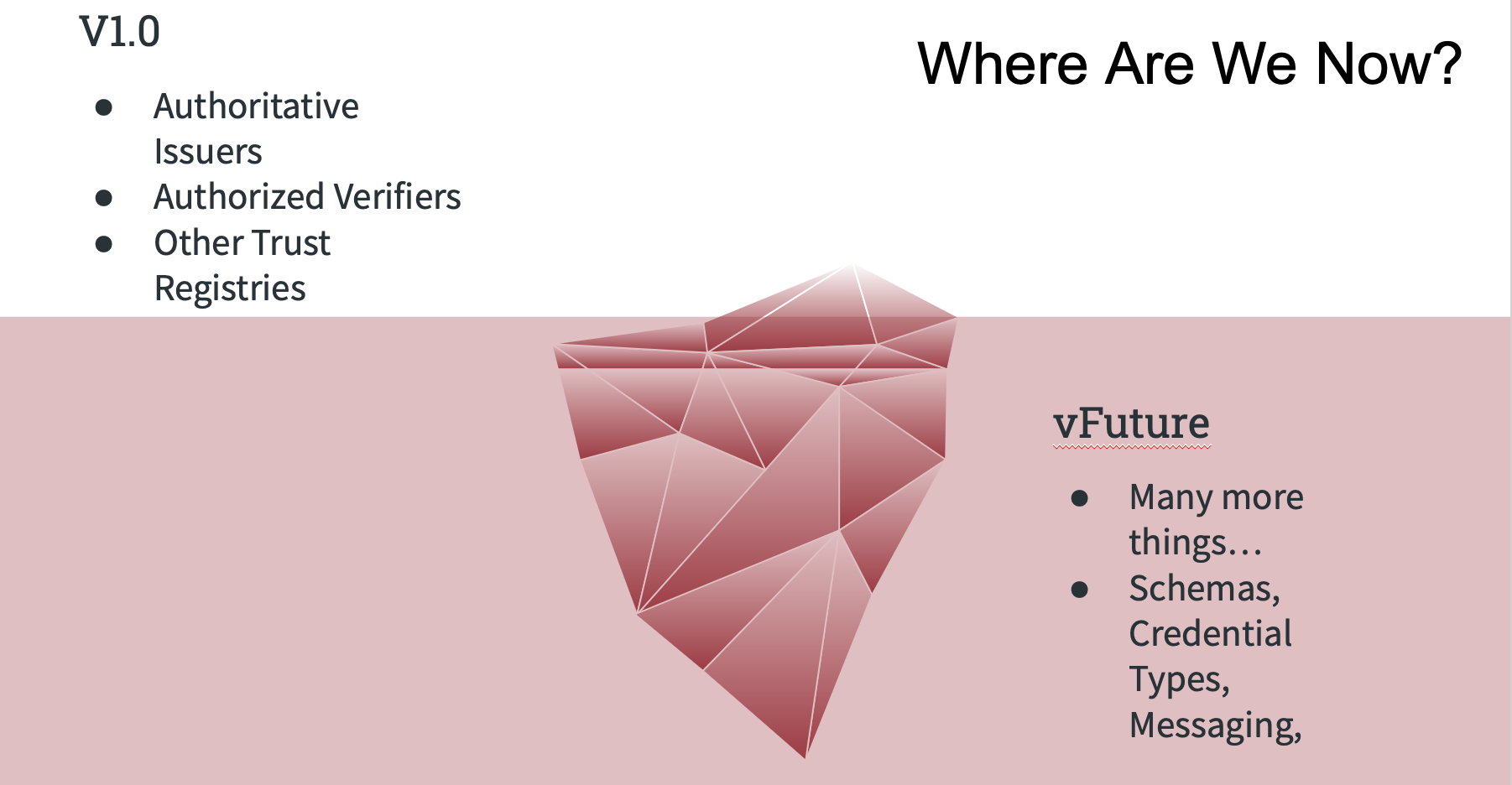Christine Martin we will capture high-level requirements and tasks here.
The v1 protocol provides answers for three main questions
- Is this Issuer Authoritative to issue a particular credential type under a governance framework.
- Is a Verifier Authorized to request a presentation under a governance framework.
- Does the answering Trust Registry acknowledge another Trust Registry under a governance framework.
The analogy we have been using about the v1.0 protocol is that it handles the simplest (but powerful) questions - it is the tip of the iceberg.
Key Areas to Consider for v2:
- Trust Registry Metadata - what data are needed by systems to understand a Trust Registry
- Centralized / Decentralized - what does this question even mean?
- Credential Information/Metadata -
- Credential Names - how do we name these things?
- Credential Types - JWT, JSON-LD, AnonCreds, SD-JWT, etc.
- There are numerous flavours of VCs and much debate. This is a problem that Trust Registries can help. They can provide answers where there aren't any in the "we are compliant with W3C Verifiable Credentials" statement.
- The use of Credential Types in Trust Registries will answer the question of "what credential format are ACTUALLY used?"
- Schema Definitions - provide the data or a pointer to the data (e.g. on ledger)
- Credential Definitions if required (AnonCreds requires) - provide the data or a pointer to the data
- Proof/Presentation Metadata
- What proof/presentation requests are supported and by whom can they be made? e.g. the overused driver license - who can request the full DL, versus an "age of majority" ZKP or some selective disclosure profile.
- What should be done for inappropriate requests - should they be reported?
- DID Metadata
- What DID Methods are supported
- What other expectations are at play (e.g. must support
did:method:identifier:GetCapabilitiesor something similar.
- Wallet Metadata
- What wallets are approved (and how) in the ecosystem
- Holder Metadata
- A
- Other technical things
- Key Bindings
- DIDAuth - is DIDAuth (its real-world implementations)
BACKGROUNDERS:
- Trust Continuum - Scott Perry's - Trust Decision...
- Trust Assurance Companion - https://trustoverip.org/wp-content/uploads/ToIP-Trust-Assurance-Companion-Guide-V1.0-2021-10-19.pdf
- Trust Assurance & Cerfification - https://trustoverip.org/wp-content/uploads/ToIP-Trust-Assurance-and-Certification-Controlled-Document-Template-V1.0-2021-10-19.pdf
2022-11-24
- Antti - connection is underlying
- TRs help create context for connection (and more)
